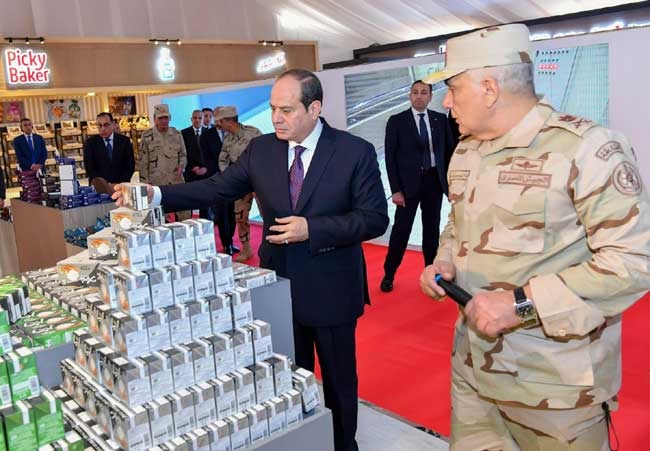The Egyptian government works tooth and nail to support those with limited income and mitigate the negative repercussions of the global economic crises, induced initially by Covid-19 and then by the current Russian-Ukrainian war.
Egyptian authorities do this by– among many other things– improving the services offered the members of the public in all fields.
The government also races against time to implement development and production projects in various sectors.
The projects aim to upgrade infrastructure and create jobs for Egyptians in all parts of the country.
The Food and Logistics Industrial City, widely known as ‘Silo Foods’ in Sadat City, northern Menoufia Governorate, is a case in point.
President Sisi opened the second stage of the city on Thursday.
Established over an area of 135 feddans, Silo Foods is made up of ten factories that together produce 470,000 tonnes of different products annually.
The president inaugurated the first stage of this mega food industries complex in August 2021 to provide meals for millions of school pupils around Egypt.
The complex contains 14-grain silos, with a production capacity of 230,000 tonnes per year.
It also contains factory for the production of biscuits with a production capacity of 68,000 tonnes annually, along with a factory for the production of different types of pasta that produces 151,000 tonnes every year.
The complex also includes a plant that produces 9,000 tonnes of all types of baked foods, as well as a halva and sesame paste factory that produces 50 tonnes every day.
Silo Foods is an affiliate of the National Service Projects Organization. It is the first and only fully integrated, highly equipped food production city in the Middle East.
The city has been named by the Guinness World Record as the ‘largest distributor of school snack packages in less than a year – from September 2021 until June 2022 – with 600,426,453 packages’.
The second stage of the city also includes a factory for the production of 100 tonnes of cardboard every day.
It also includes a central laboratory that encompasses a chemical and microbiology laboratory.
Silo Foods products are exported to 13 countries in Europe, Africa and Asia, at an export capacity of 11,000 tonnes.
The city aspires to produce 750,000 tonnes of basic commodities every year.
The factories established within the second phase will produce 200,000 tonnes of dairy products, 16,000 tonnes of halva, and 7,800 tonnes of dunking and molding biscuits annually.
This same stage includes a recycling station with an annual production capacity of 1,300 tonnes, with a view to countering the negative impacts of climate change.
It contains 18 central warehouses with a capacity of about 55,000 tonnes. It also includes seven factories for vegetables, frozen fruits, legumes, ready meals and juices, sauce and jam, in addition to a containers factory to pack the products.






Discussion about this post